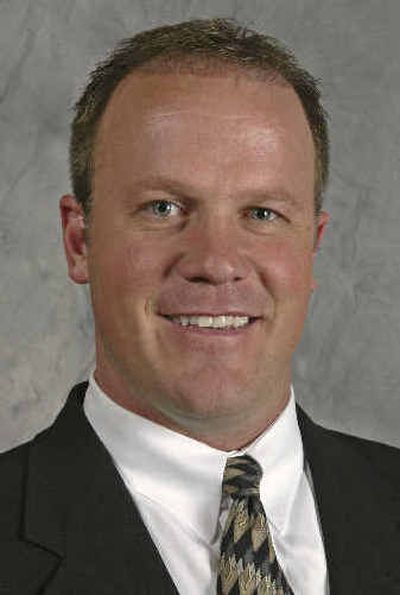Schools duped by fitness pyramid scheme

SALT LAKE CITY – Cameron J. Lewis had a deal for public schools across the country: If they would buy a full set of fitness equipment, he promised his charity would reimburse them later with money from private donations or government grants.
If that sounds too good to be true, it’s turning out that way. Lewis says he can no longer afford to reimburse about 600 school districts in 20 states that bought $77.5 million worth of weight machines, treadmills and other equipment.
Minnesota Attorney General Mike Hatch has accused Lewis of operating a pyramid scheme by using money from newly enlisted schools – not grants or donations – to make token reimbursements to schools that signed up early to buy or lease the equipment. Many of the schools were left unable to pay off bank loans or satisfy leasing terms.
“Usually a Ponzi scheme involves little old ladies,” Hatch said earlier this month. “To be able to take that kind of money out of government agencies is stunning.”
In Ohio, Chris Essman, treasurer for Bexley City Schools, said the school district has received $70,000 in reimbursements. It still owes $140,000 in lease payments on the equipment.
“It’s one of those things that sounded too good to be true,” Essman said. “I was disappointed more than shocked.”
An investigation by the Associated Press reveals Lewis has had a string of failed businesses, a history of personal bankruptcy and used his nonprofit foundation to give himself a $317,358 salary.
Lewis, 33, did not dispute those findings, but denied any impropriety blaming Hatch’s investigation for the collapse of his Utah-based charity, the National School Fitness Foundation.
“We’re not obligated to make those contributions. We have willingly done so for as long as we can,” Lewis said.
“We were trying to do a good thing, and we’re getting killed for it.”
Lewis makes for an unlikely philanthropist; he claims to have poured $1.6 million of his own money into the foundation.
But when filing for bankruptcy in 1996, he listed $6,840 in assets, including a six-year-old Isuzi truck and an electric guitar, with nearly $20,000 in liabilities.
“There were a lot of things going on at that point,” said Lewis, who did not have to pay any creditors but claims he has made good on every debt.
Tax returns for the National School Fitness Foundation show Lewis is collecting a $317,358 salary, but he says that salary covered the foundation’s first two years. He said he’s now pulling down $185,000.
Francine Giani, director of Utah’s Consumer Protection Division, is helping Minnesota investigate Lewis’ charity but doubts it will come to anything.
There is no evidence Lewis used deceptive sales practices, Giani said.
The foundation appears to have protected itself legally by carefully writing contracts with school districts, saying the districts are responsible for paying off the cost of the exercise equipment if the foundation is unable to raise enough money to reimburse schools, Giani said.
Utah schools have filed no complaints, “which makes our job a little more tasking,” she added.
Lewis, meanwhile, said he was committed to improving the lives of overweight school kids by providing exercise machines and a training regimen.
“The sad thing is that many kids are obese and the likelihood they can get past that in adolescence is slim to none. It’s a sad, sad fact,” said Lewis.
“Here we’ve got a program that really works.”